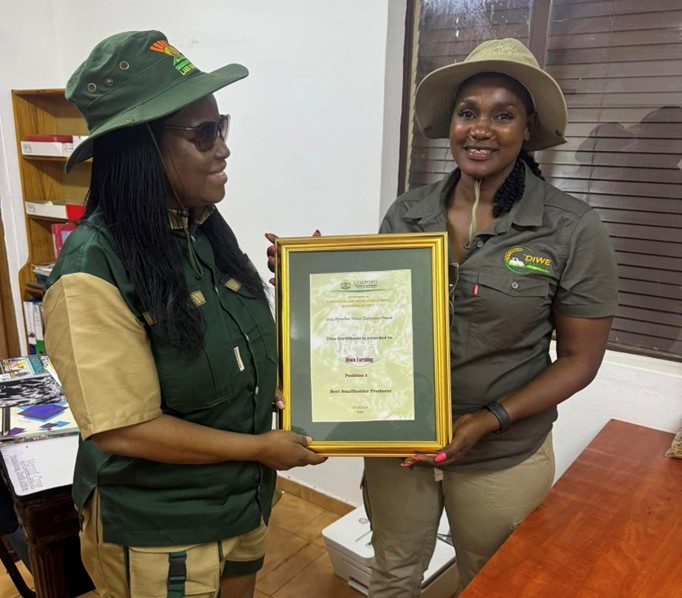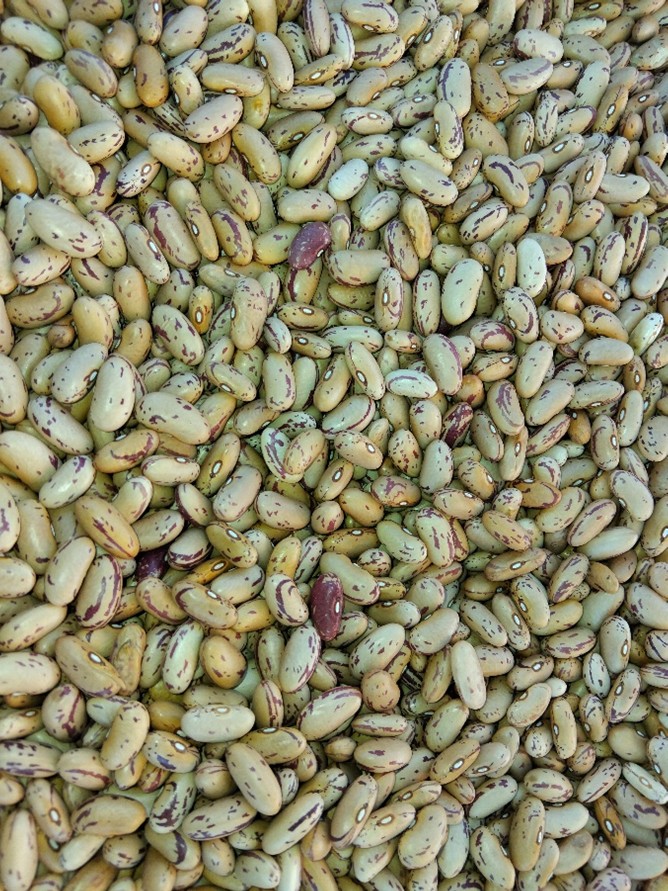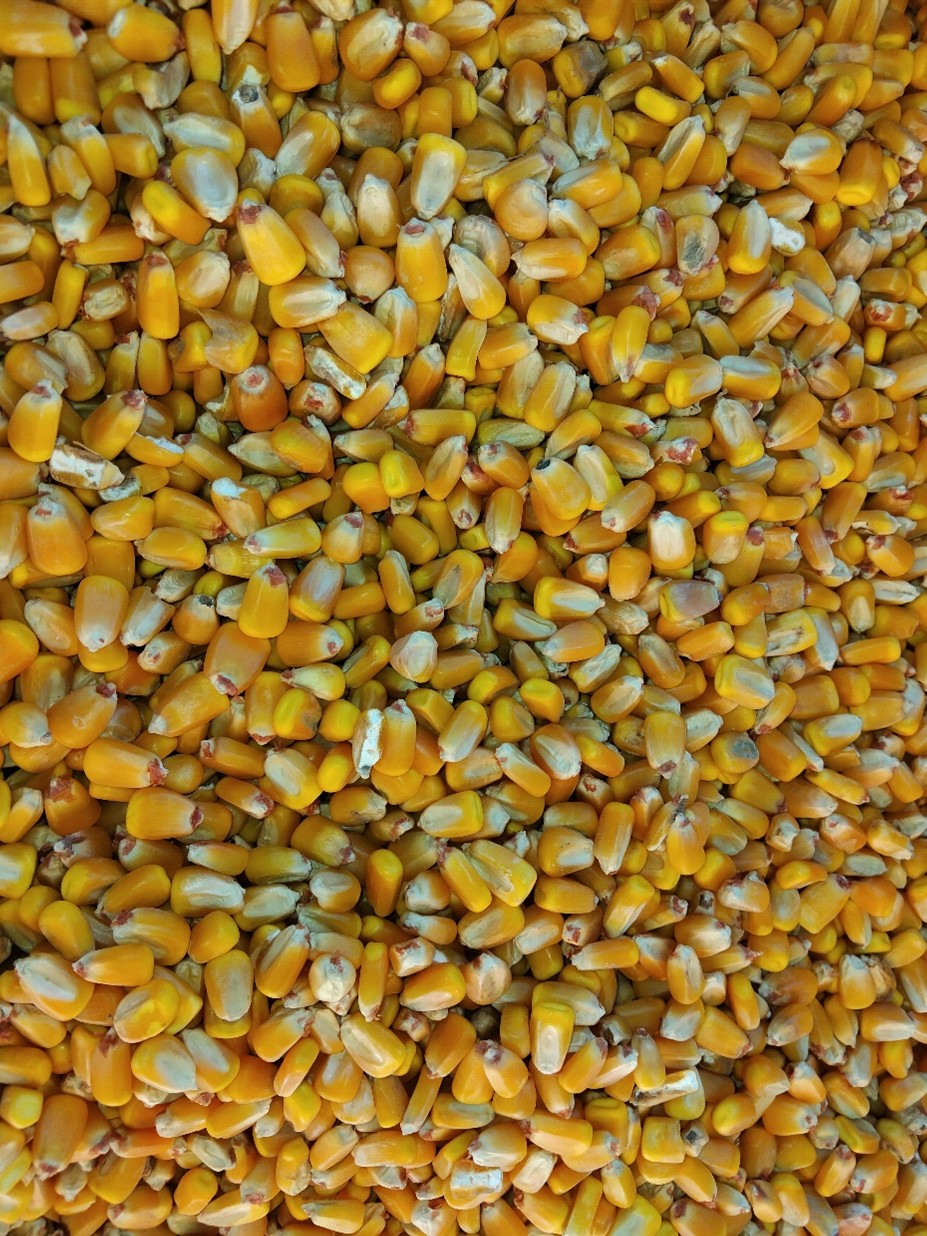By Matsobane Manaka

MEC Nakedi Kekana (left) and Lindiwe Motlakala of Diwe farm during the launch of Planting Season.
Meet Lindiwe Motlakala, an award-winning female grain and vegetable producer, who goes precision farming contributed to her success.
Lindiwe operates under Diwe Farming. The leased farming project is located at Haakdoring 373 KQ, Koedoeskop, Thabazimbi under Waterberg West Agroecological Zone, in Waterberg District. The project is leased for seven years on 100 ha of irrigation land.
The primary enterprise idea began in 2019 and started flourishing in 2022 with the assistance and mentorship of the farm owner, Mr Jan Buys. In essence, Diwe Farming started with only 7,5 ha and went further to 15 ha until the landowner realised her commitment, resilience, and focus, and as a result increased land to 38 ha. Due to Diwe’s commitment, the landowner further increased the land to 100 ha.
The farmer produces variety of grains inclusive of yellow maize, soya, wheat, sugar beans and watermelon. In 2023, the farmer produced tons of the mentioned variety. The Limpopo Department of Agriculture and Rural Development (LDARD) has assisted the farmer with extension and advisory services. This is in addition to help the farmer to access hired machineries and equipment with GPS fitted or automation for production, which commonly known as precision farming from the lessor who also provide mentorship for project sustainability. Precision technologies can be part of the solution to address food security. These technologies are designed to collect and analyse data and provide suggestions to farmers on ways to increase farm efficiencies, such as reducing input costs while increasing yield or reducing on-farm labour requirements.
Motlakala’s commitment and determination could not only won her a 2024 Female Entrepreneur Award at District Level, but also secured formal markets for her produce – including Grain Field Holdings, Mabeka Agency, Roots Stores, Spa and Pick n Pay.
The project has created four permanent jobs and additional seasonal workers of 35, mostly women and youth.
The farmer intends to expand to 300 ha of production under irrigation to increase job opportunities, address food security and contribute towards economic growth of her area of operation and beyond.




